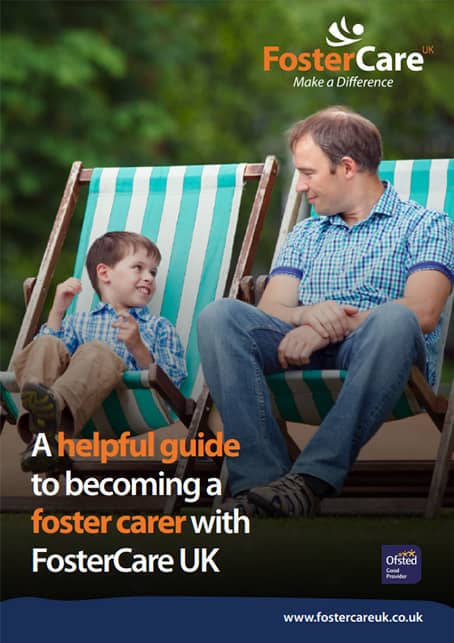


What happens when a child is taken into care?
Benefits of being a foster parent
What is a care leaver?
How to become a foster parent
How to foster a child
What are the foster care requirements
Can I choose who I foster?
Fostering with pets FAQ
How long does it take to become a foster parent?
What is the role of an independent fostering agency?
Fostering a disabled child
Tips for coping when foster placements end
Do foster carers pay tax?
What to expect in a fostering assessment
Common Fostering Challenges and Solutions
What disqualifies you from being a foster carer?
Muslim Fostering
Fostering as a single parent
Can you foster a child with a criminal record?
Can you work and foster?
Top 10 fostering myths
Can I foster if…?
Can I foster and rent?
LGBT Fostering: can I foster if I’m gay
Top transferable skills to become a foster carer
Can you foster with a mental health condition?
Christian Fostering
Sikh Fostering
Cultural Diversity in Foster Care
How to encourage foster children to read
Reasons for a child to be taken into care
Tips for coping with attachment disorders in Foster Children
Fostering vs Adoption
What happens when foster parents get divorced?
What is reunification in foster care?
How to deal with foster child bullying
A guide to the foster care handbook
Guide to fostering young children
Types of self-harm
A guide to fostering teenagers
What are the signs of depression in foster children?
Considering becoming a foster carer, but unsure how to apply? Brush up on the foster care requirements to determine your eligibility today. If you do not meet these initial criteria for fostering, you will not be able to continue with your application. Learn the main fostering requirements in the UK today from our detailed guide.
The selection of foster carers, just like the children who are awaiting foster care, is diverse. This means that regardless of your race, gender, sexual orientation, religion or ethnicity, as long as you meet the fostering criteria, you are eligible to foster. If you’re not sure whether or not you can foster, get in touch with a member of our friendly team here at FosterCare UK who can provide you with more information.
Alongside the legal foster carer requirements, there are also various other elements that should be thought about when you’re considering if you can foster. Some of these include:
However, there are common misconceptions that often people rule themselves out of fostering on:
Once you know that foster carer is the right path for you, get your fostering journey underway with an initial enquiry. We’ve broken down our 7-step process to becoming a foster carer:
1. Initial enquiry – To get the process underway, contact us by completing an online form, request a call back or an information pack.
2. Arranging a home visit – We will arrange to meet you and your family at your family home. Alternatively, we can arrange this via video chat. This helps us get to know you better and provides you with a chance to ask us questions.
3. Applying to become a foster carer – Next, you will need to complete an application form, at which point you will be assigned a social worker to help you through the process.
4. Starting the assessment – At this stage, you and your social worker will work together to complete a Form F Assessment.
5. Skills to foster – We provide foster care training in the shape of our ‘Skills To Foster’ training course.
6. Going to panel – Final checks are then carried out by our fostering panel before your recommendation to become a foster carer is made.
7. Your placement – Congratulations! You’re now an approved foster carer and ready for a placement!
Decided that fostering is the right choice for you? Learn more about how much foster parents get paid, the fostering recruitment process and more. Get in touch with one of our expert team here at FosterCare UK for more information.
If you’ve got any questions or would like to find out more about fostering with Capstone, fill out the form below.
An experienced fostering advisor from your local area will then be in touch.

Start the conversation today. Our team of friendly advisors are on hand to answer any foster care questions you may have. We can offer you honest and practical advice that can help you decide if becoming a foster carer is the right path for you.


